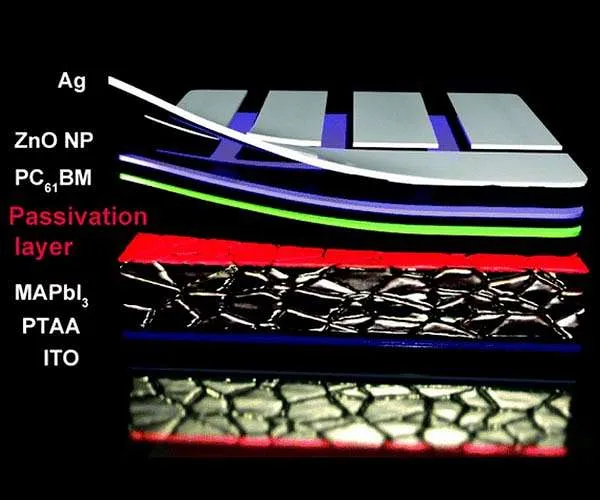2D ruddlesden-popper phase perovskite passivation layer for effective and also stable PSCS
- A research team, led by Professor Hyesung Park in the Department of Materials Science and Engineering at UNIST has done well in producing possibly high efficiency, stable, as well as scalable perovskite solar cells (PSCs) using vacuum deposition device, a technique of fabricating organic light-emitting display tools (OLEDs). Such technique is additionally helpful for the automation of batteries, which is anticipated to additional increase the commercialization of the PSCs, according to the research team.

In this study, the research team showed very reliable and also stable PSCs with a vacuum-processed Ruddlesden-Popper (RP) phase perovskite passivation layer. By regulating the deposition rate of the RP phase perovskite, which straight influenced its crystallographic orientation, the research team successfully obtained an extremely purchased 2D perovskite passivation layer.
The 2D perovskite layer passivated the bulk perovskite flaws and advertised the charge transport efficiency in the PSC. Consequently, the BABr (V) inverted PSC has achieved a champion PCE of 21.4% in the resulting tool with impressive humidity and thermal stability.
This number is by far the highest ever accomplished for PSCs created by vacuum deposition. In addition, it showed enhanced long-lasting functional stability, such as preserving 62% of its preliminary PCE (average) when operated for 1,000 hours under 60-70% loved one humidity at space temperature level, also without device encapsulation.
"Our findings give a new viewpoint towards additional boosting the performance of PSCs by alleviating nonradiative recombination pathways in perovskites," kept in mind the research team.
The findings of this research were made available in June 2022, ahead of its magazine in the journal, Energy and Environmental Science (ESS, IF = 39.714). This research study has actually been sustained by the Basic Science Research Program via the National Research Foundation of Korea (NRF), funded by the Ministry of Science as well as ICT (MSIT).
Also read

